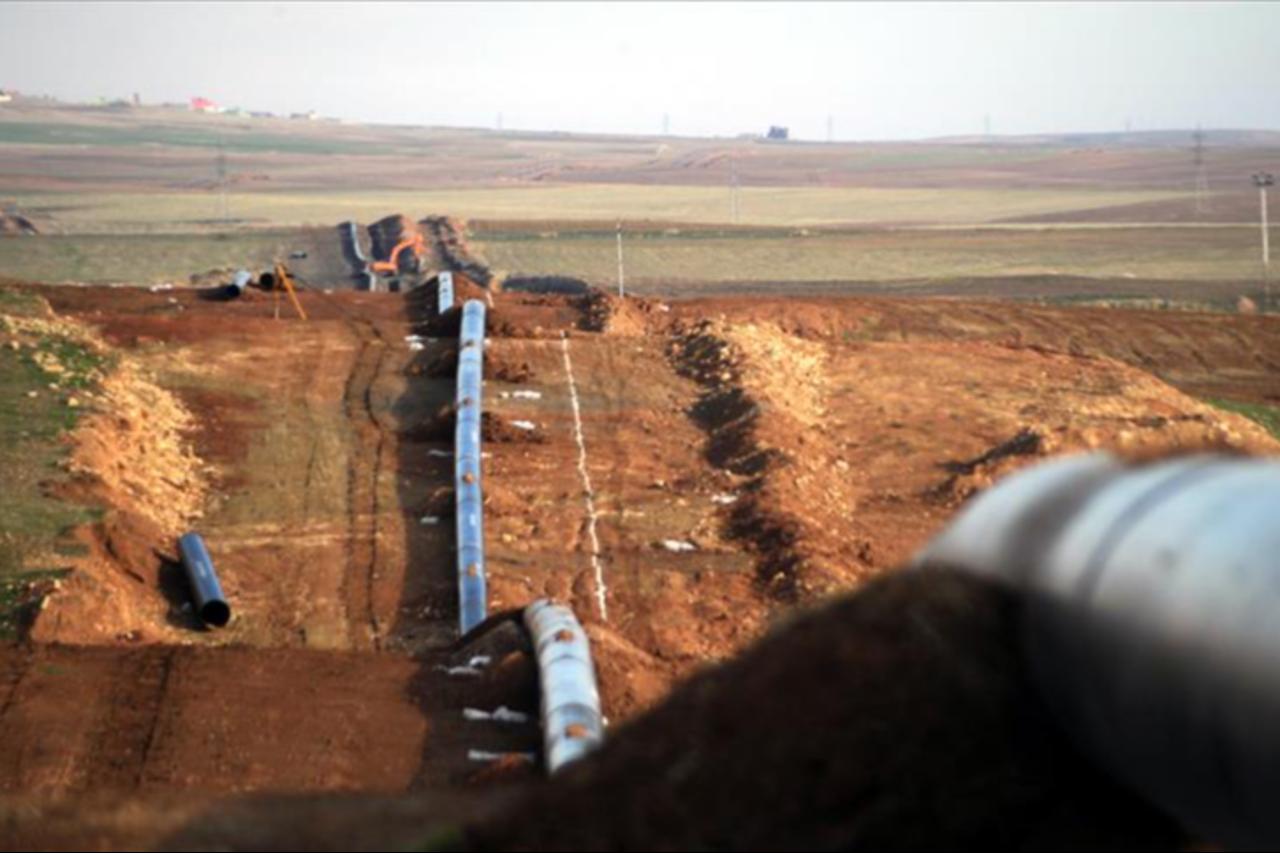
The petroleum trade agreement between Türkiye and Iraq, which has been in force for nearly half a century, will expire on July 27, 2026, according to a presidential decree published in Monday's Official Gazette.
The development came amid ongoing efforts between the Kurdistan Regional Government (KRG) and Iraq’s central government to reach a lasting agreement on the management and export of oil, as flows through the Kirkuk-Ceyhan pipeline have been halted for over two years following an International Court of Arbitration ruling, severely curbing Iraq’s oil exports.
Originally signed in 1973 and extended for 15 years under a 2010 protocol, the agreement’s expiration marks a turning point in Türkiye’s energy foreign policy, as both countries are expected to revive their cooperation under a renewed framework.
The Kirkuk-Ceyhan pipeline, the main point of contention between Iraq and Türkiye over oil flows, was one of the most important export routes connecting oil fields in northern Iraq to the Mediterranean Sea. However, in March 2023, the pipeline was shut down following a ruling by the International Court of Arbitration against Türkiye. The court ruled that Türkiye had authorized oil exports from the KRG without the approval of the Iraqi central government and ordered compensation to be paid.
More specifically, the court said Ankara allowed Iraqi-Kurdish authorities to pump crude without Baghdad’s permission and ordered Türkiye to pay Iraq $1.5 billion for unauthorized exports between 2014 and 2018.
Before the closure, the pipeline was shipping around 500,000 barrels per day (bpd) of crude. At full capacity, the entire pipeline system, consisting of two lines, can transfer up to 1.5 million bpd, according to Türkiye’s state-owned pipeline operator BOTAS.
Following this decision, approximately 450,000 barrels of oil per day were cut off, resulting in significant economic losses for both Türkiye and Iraq.
Despite the disruption, Iraq still remains the second-largest source of Türkiye's oil imports during the January–April period, supplying approximately 10.6 million barrels, according to the official figures.

Amid growing concerns over the negotiations between KRG and Iraq’s central government, Türkiye’s Energy and Natural Resources Minister Alparslan Bayraktar emphasized that the Kirkuk-Ceyhan pipeline is technically operational and that shipments could resume if necessary, according to a statement made on March 2.
“Although the oil pipeline has not been in operation for 1.5 years, it is ready and waiting. We are in contact with our Iraqi counterparts regarding the reactivation of the pipeline and increasing its capacity,” he said.
Bayraktar also revealed that Türkiye has proposed a new energy package that goes beyond crude oil transportation, encompassing areas such as natural gas, electricity, and petrochemicals.
In a later statement on April 4, he added that no disruption in oil supplies from Iraq or other source countries is expected. He noted that Türkiye’s energy strategy, which prioritizes diversification through multiple supply routes, ensures flexibility in the face of such developments.
In a significant step toward easing tensions, Iraq’s Council of Ministers approved a new financial arrangement with KRG on Thursday, setting the stage for the resumption of public sector salary payments in the Region and the potential restart of Kurdish oil exports.

Experts point out that the prolonged closure of the Kirkuk-Ceyhan pipeline will cause economic losses for both Türkiye and Iraq, and predict that the current situation is unsustainable and that the parties will be forced to establish a new agreement in the medium term.
Iraqi energy expert Luqman al-Khateeb says that the shutdown of the pipeline has reduced Iraq's export revenues and weakened its influence in the oil market. Washington-based energy analyst Matthew Reed emphasizes that Türkiye is trying to continue its conjecture with alternative energy projects during this process, but the strategic importance of the Kirkuk-Ceyhan pipeline continues.
These views are confirmed by a Bloomberg report, which states that both countries have been cooperating to revise the agreement in pursuit of stronger economic ties in the future. The Turkish side has been working industriously to compensate for the economic loss of this energy agreement, equaling over $25 billion, according to the report.
Following the cancellation of the agreement, Türkiye’s proposed new energy package reflects a search for more comprehensive and multifaceted cooperation between the parties. This package includes joint projects not only in oil but also in areas such as natural gas, petrochemical products, and electricity production.
Infrastructure investments in transportation, customs, and logistics are also included in this new cooperation perspective. In particular, the “Development Road” project planned in northern Iraq has significant potential as a trade and energy corridor extending to Europe via Türkiye.
Both energy ministries from both countries are continuing their negotiations to find an intermediate treatment, benefiting mutually. In the scope of a new agreement, a deal with a capacity of 1.4 million barrels is anticipated to be realized and revive the 52-year-old agreement once again.